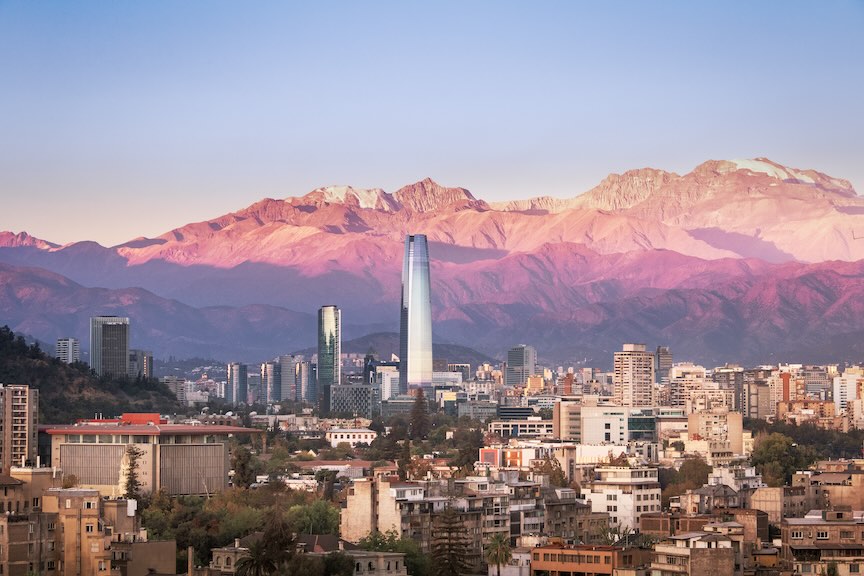
Elections held in December brought Patricio Aylwin to power as President of Chile. Chileans held their breaths, but Chilean military dictator, Augusto Pinochet, stepped aside at the beginning of 1990 in favor of the newly-elected President.
The Historic Election of Patricio Aylwin and the Transition of Power in Chile
In December 1989, Chileans went to the polls in a landmark election that marked the beginning of the end of nearly two decades of military dictatorship under General Augusto Pinochet. The election brought Patricio Aylwin, a moderate and experienced politician, to power as the newly elected President of Chile. This momentous event signaled a return to democracy in a country that had been under authoritarian rule since the military coup of 1973.
Augusto Pinochet had come to power in a violent coup on September 11, 1973, overthrowing the democratically elected socialist president, Salvador Allende. Pinochet's regime was marked by widespread human rights abuses, including the torture, disappearance, and execution of thousands of Chileans who opposed the military government. Despite the brutality of his rule, Pinochet maintained a firm grip on power, implementing neoliberal economic policies that led to significant economic growth but also deepened social inequalities.
By the late 1980s, however, Pinochet's regime faced increasing domestic and international pressure to restore democracy. In 1988, a national plebiscite was held to determine whether Pinochet would extend his rule for another eight years. To the surprise of many, the "No" campaign, which opposed Pinochet's continued rule, won with 56% of the vote. This result forced Pinochet to accept the terms of the 1980 Constitution, which called for democratic elections to be held in 1989.
The 1989 election was a critical turning point for Chile. Patricio Aylwin, a Christian Democrat and leader of the center-left coalition known as the Concertación, emerged as the candidate best positioned to lead the country through its transition to democracy. Aylwin had a long history of political involvement, having served as a senator and as president of the Christian Democratic Party. He was known for his moderate views and his commitment to human rights, making him an appealing choice for many Chileans who sought to move beyond the divisive legacy of the Pinochet era.
Aylwin's campaign focused on the need for national reconciliation, economic stability, and the restoration of democratic institutions. He promised to address the deep social and economic inequalities that had developed under Pinochet's rule while also ensuring that the transition to democracy would be peaceful and orderly. His message resonated with a broad spectrum of Chilean society, from working-class citizens to members of the business community who feared instability.
On December 14, 1989, Patricio Aylwin won the presidential election with 55% of the vote, defeating his main rival, Hernán Büchi, who had served as Pinochet's finance minister. The election was widely regarded as free and fair, a significant achievement in a country that had been ruled by a military dictatorship for 17 years.
As the results of the election became clear, Chileans held their breath, unsure of how Pinochet would respond. The general had a reputation for ruthlessness, and many feared that he might refuse to relinquish power, plunging the country into another period of violence and repression. However, in a move that surprised both his supporters and detractors, Pinochet accepted the election results and agreed to step aside in favor of the newly elected president.
Pinochet's decision to cede power was influenced by several factors. First, the international community, including key allies such as the United States, had made it clear that they expected Chile to respect the democratic process. Second, the Chilean military, while still loyal to Pinochet, recognized that the country's future stability depended on a peaceful transition to civilian rule. Finally, Pinochet himself believed that he could continue to exert influence over Chilean politics even after leaving the presidency, particularly through his position as commander-in-chief of the army, a role he retained until 1998.
On March 11, 1990, Patricio Aylwin was inaugurated as the President of Chile, marking the official end of Pinochet's dictatorship. Aylwin's presidency was characterized by efforts to heal the wounds of the past while laying the foundation for a more inclusive and democratic society. One of his first acts as president was to establish the National Commission for Truth and Reconciliation, which documented human rights abuses committed during the Pinochet regime and sought to provide justice for the victims.
Aylwin also implemented economic reforms aimed at reducing poverty and inequality while maintaining the macroeconomic stability achieved during the Pinochet years. His government was careful to avoid drastic changes that could destabilize the economy, focusing instead on gradual reforms that would improve living standards for all Chileans.
Patricio Aylwin's successful transition to power and his efforts to consolidate democracy in Chile earned him widespread respect both at home and abroad. His presidency marked the beginning of a new era in Chilean history, one in which democratic institutions were strengthened, and the rule of law was reestablished. The peaceful transfer of power from Pinochet to Aylwin remains a significant milestone in the history of Latin America and a testament to the resilience of the Chilean people.
 >
>